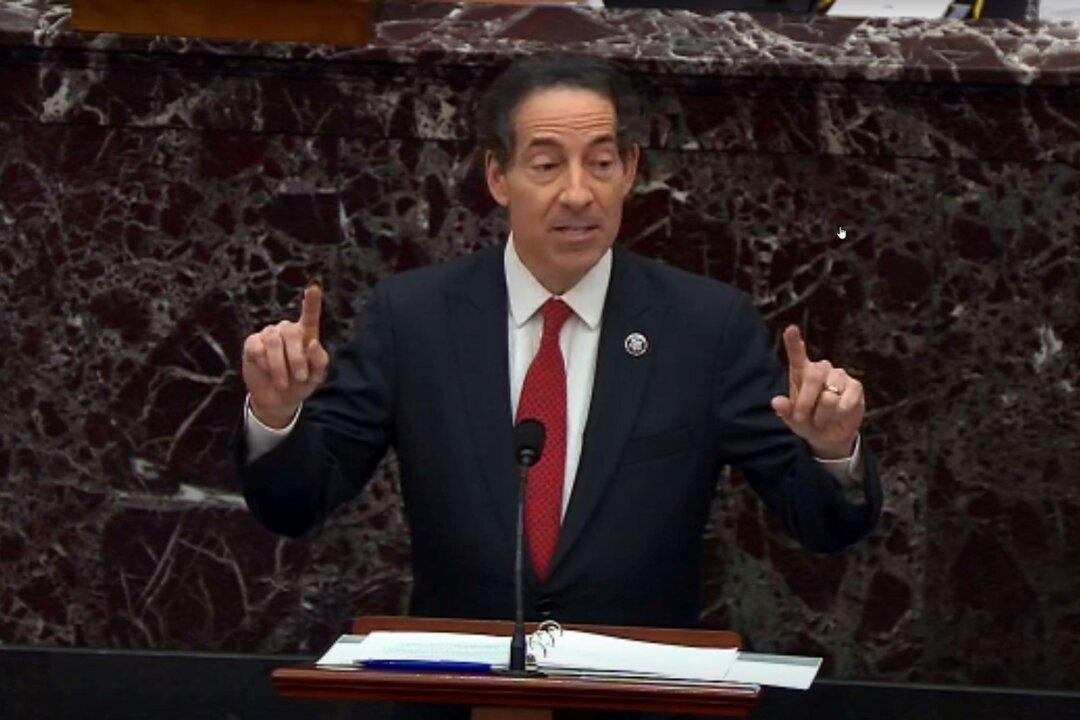House Democratic impeachment managers wrapped up two days of arguments on Thursday, making the final case that former President Donald Trump should be convicted in his impeachment trial.
“We humbly, humbly, ask you to convict President Trump for the crime for which he is overwhelmingly guilty of. Because if you don’t, if we pretend this didn’t happen, or worse, if we let it go unanswered, who’s to say it won’t happen again?” House impeachment manager Rep. Joe Neguse (D-Colo.) said in his closing remarks.





